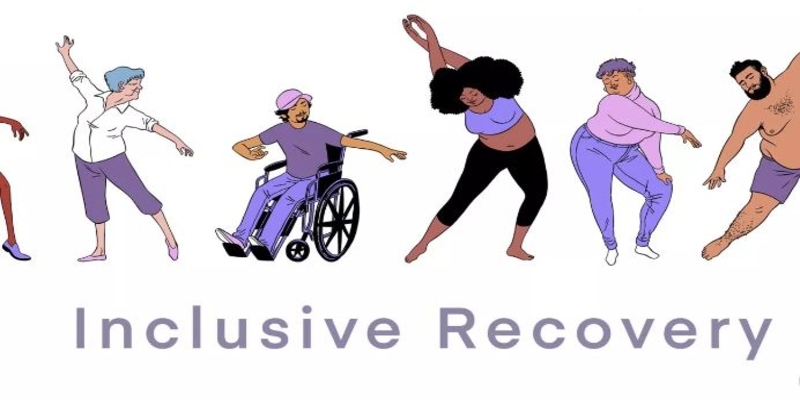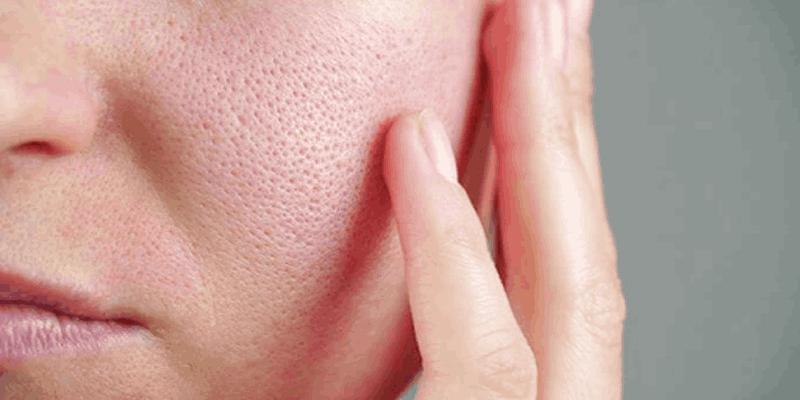Eating disorders are not restricted by age, sex, race, or body type. They are one of the most common diseases found in people and must be addressed before they worsen.
However, to ensure an accurate treatment, it is essential to know some basic information, such as the type of eating disorder, symptoms, and the correct way to deal with it, which we will discuss in the upcoming content. So, make sure to read until the end.

Types of eating disorders
Knowing the type of eating disorders helps to accurately treat it. Eating disorders can develop in those who frequently eat unhealthy or don't have an excellent digestive system.
There are multiple types of eating disorders, including the following.
1. Anorexia nervosa:
People with these eating disorders reach the point of self-starvation by restricting food items to themselves with the strong desire to lose weight. Anorexia nervosa is characterized by someone's behavior of refusal to eat healthy food according to their body type.
2. Bulimia nervosa:
People who suffer from Bulimia nervosa eat unnecessarily. They eat as a part of habit, not because of hunger or need. As a result, they might suffer from common stomach problems like vomiting and diarrhea.
3. Binge Eating Disorder
Also known as BED, this disorder makes the patient suffer from binge eating. That means they ate more food in a shorter period than usual. They feel uncomfortably full all the time and might struggle with multiple mental problems like shame, regret, and guilt.

Symptoms of eating disorders
Here are a few symptoms of eating disorders, you can rely upon to know if you are suffering from any eating disorder or not.
1. Mood Swings
When you develop an unhealthy eating pattern, it alters your mood. If you are noticing your mood changes after overeating, it is a clear sign that you are suffering from an eating disorder like BED.
2. Hair loss and skin issues
Skin and hair are two body parts that need vitamins and minerals to maintain their condition. If you start restricting yourself from the healthy food your body requires, the skin will gradually lose its elasticity, and hair will weaken. Hence, if you observe any such condition, know that you are suffering from Anorexia nervosa.
3. Drastic weight change
Suppose you notice a sudden and drastic weight change. In that case, no matter whether it increases or decreases, you are suffering from an eating disorder for sure unless you haven't developed any other chronic diseases. If you notice this change, consult a doctor right away.

How to treat eating disorders
Now that you know all the types and symptoms to detect it, here are a few treatments you can rely upon to cure these.
1. Psychotherapy
The unusual eating patterns caused by eating disorders can make you suffer from multiple mental diseases. It is essential to address these first because you can never be physically healthy when you are not mentally healthy.
So, psychotherapy is a treatment that focuses on training your mind to leave the current eating pattern and adapt to a new one. Multiple types of psychotherapy are used for this purpose, including Cognitive Behavioral Therapy (CBT), Dialectical Behavior Therapy (DBT), etc. Your doctor will recommend one based on your condition.
2. Medications
Some people with extreme disorders can observe a sudden increase in weight, which is very difficult to shed. In such cases, your doctor might recommend medicines such as glucose reduction pills so that sugar in your blood can dissolve early, aiding the speed of weight loss and preventing the condition from worsening.
However, if the eating disorder has caused a weight reduction, your doctor will recommend multivitamins, calcium pills, and supplements to cater to the deficiency. If the eating disorder has caused mental illness like anxiety and depression, you might also be given medication for that.
3. Adapting to a healthy lifestyle
If you think your eating disorder is not severe, you can first try to adopt a healthy lifestyle before consulting a doctor.
Simply put all the packet stuff, including biscuits and chips, in the trash. Next, replace gluten-filled products like floor and all items made from it with healthier options like almond flour, gram flour, etc. Avoid sugar and all related stuff.
Instead, add all the natural food items, including fruits, raw vegetables, fresh juices, etc. In addition, exercise at least four times a week and take at least 8 hours of sleep.
It is one of the basic yet most effective ways to recover from eating disorders without involving doctors. However, if you think your disorder is something serious, consult a doctor.
4. Hospital stay
A hospital stay might be necessary if you are suffering from severe physical and mental problems, such as not being able to gain weight or higher-than-usual weight. In both cases, severe life-threatening problems can occur.
Thus, it becomes integral for doctors to admit patients to the hospital for close monitoring. They track multiple things during the stay, such as electrolyte imbalances, heart problems, bone density, nutrition levels, etc.
Once the necessary procedures are followed and you are recommended the medication, you are allowed to leave for the home.
5. Sustaining the results
You might get back to everyday life by recovering from eating disorders through therapies, medications, or hospital aid. However, it is now up to you to sustain the results. For this, adapt to a healthier lifestyle and take control of your appetite.
Do not repeat the same eating pattern. Instead, follow the diet plan and lifestyle guide you might have been prescribed by the doctor. If you do all these things, you can sustain the results for the long term, preventing the same disorders from ever occurring again.
Conclusion
Eating disorders can occur at any time and to anyone. Hence, it is integral to know all the basic information to deal with them. This is why we have formed this guide, which discusses the type of eating disorder, its symptoms, and five ways to recover from it fast.

A Comprehensive Guide On How To Do Superman Core Exercise
Mar 05, 2024

Signs of Fibroids Breaking Down
Feb 25, 2024

Best Oils for Dry Skin
Dec 20, 2023

What are The Three Levels of Autism
Feb 10, 2024

How to Close Your Pores
Nov 16, 2023

What is Intubation
Jan 10, 2024

Are Ear Infections Contagious
Oct 04, 2023

What You Need To Know to Get Started on the Flexitarian Diet
Feb 22, 2024



